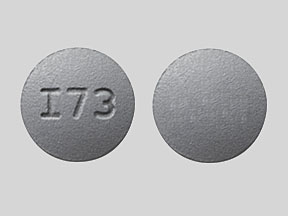
Minocycline Coupons & Savings Card – Discount Prices from $31.63
Generic for: Minocin
My prescription
Edit
100MG, Minocycline (60 Tablets)
Select pharmacy

CVS
$31.63
COUPON PRICE
Walgreens
$48.78
COUPON PRICE
Walmart
$51.88
COUPON PRICE
Albertsons
$57.41
COUPON PRICEMinocycline savings card
Show this card to your pharmacist
CVS
$31.63
BIN
ID
PCN
GRP
019876
LH279BBB6E
CHIPPO
LHX
Powered by
Related tetracycline antibiotics prescriptions
More prescriptions for urinary tract infection
Related tetracycline antibiotics prescriptions
More prescriptions for urinary tract infection
Minocycline dosage forms
Dosage Quantity Price from Per unit 50MG 60 Tablets $24.77 $0.41 50MG 90 Tablets $36.00 $0.40 50MG 100 Tablets $37.08 $0.37 75MG 30 Tablets $22.89 $0.76 75MG 60 Tablets $27.89 $0.47 75MG 100 Tablets $42.28 $0.42 100MG 60 Tablets $31.63 $0.53 100MG 50 Tablets $29.41 $0.59
| Dosage | Quantity | Price from | Per unit |
|---|---|---|---|
| 50MG | 60 Tablets | $24.77 | $0.41 |
| 50MG | 90 Tablets | $36.00 | $0.40 |
| 50MG | 100 Tablets | $37.08 | $0.37 |
| 75MG | 30 Tablets | $22.89 | $0.76 |
| 75MG | 60 Tablets | $27.89 | $0.47 |
| 75MG | 100 Tablets | $42.28 | $0.42 |
| 100MG | 60 Tablets | $31.63 | $0.53 |
| 100MG | 50 Tablets | $29.41 | $0.59 |
Minocycline Warnings
When considering the use of minocycline, it is crucial to be aware of certain safety warnings and potential risks associated with this medication. Please review the following information carefully and discuss any concerns with your healthcare provider.
Risk to Unborn Babies: Minocycline can affect fetal development, potentially causing abnormal bone growth. It is advised that individuals planning to conceive, whether male or female, avoid this medication. Additionally, minocycline may reduce the effectiveness of some birth control pills, so it is recommended to use an additional contraceptive method during treatment. If pregnancy occurs while on minocycline, discontinue use immediately and contact your healthcare provider.
Dental Discoloration in Children: Minocycline, a tetracycline antibiotic, can cause permanent discoloration of teeth in young children and unborn babies if taken by the mother during the latter half of pregnancy. This side effect is more common with prolonged or repeated use of the medication. Those at risk include pregnant individuals in their second trimester, children aged 8 or younger, and individuals on extended or repeated courses of minocycline.
Infectious Diarrhea: The use of minocycline can lead to Clostridium difficile-associated diarrhea, a potentially severe and contagious condition. Symptoms include watery stools, abdominal pain, fever, nausea, and loss of appetite. Immediate medical attention is required if these symptoms occur. Risks are heightened with the use of multiple antibiotics, long-term antibiotic use, older age, recent hospital stays, weakened immune systems, or previous C. diff infections.
Severe Allergic and Skin Reactions: Rare but serious allergic reactions can occur, including difficulty breathing, swelling, rashes, and unexplained blisters or sores. Seek emergency medical help if these symptoms develop.
Kidney and Liver Damage: Minocycline may cause damage to the kidneys or liver, particularly in individuals with pre-existing conditions. Symptoms such as dark urine, changes in urination, abdominal pain, or yellowing of the skin or eyes should prompt immediate consultation with a healthcare provider.
Intracranial Hypertension: Some individuals may experience high brain pressure, especially when minocycline is combined with isotretinoin. Symptoms include headaches and vision changes. Discontinue use and seek medical advice if these occur, as they could lead to permanent vision impairment.
Skin and Tissue Discoloration: Minocycline can cause darkening of the skin, nails, and other tissues. While usually harmless, consult your provider to rule out other health issues.
New Infections: Long-term use of minocycline may result in new fungal or bacterial infections. Do not exceed the prescribed duration of use, and inform your healthcare provider if new symptoms arise or if the original condition persists.
Autoimmune Disorders: Extended use of minocycline, especially for acne treatment, might be associated with autoimmune issues such as liver or blood vessel inflammation, fever, rash, and joint pain. Discontinue use and consult with your provider if such symptoms occur.
Minocycline Side Effects
Common side effects:
- nausea
- vomiting
- diarrhea
- lightheadedness
- dizziness
- sensation of spinning
- headaches
- fatigue
- itching
- drowsiness
- joint or muscle pain
- general discomfort
- dry mouth
Less common but important to monitor:
- oral thrush
- yeast infections
- white patches in the mouth
- changes in vaginal discharge
Serious side effects:
- severe allergic reactions
- trouble breathing
- hives
- swelling of the face, lips, tongue, or throat
- severe skin reactions
- rashes
- blisters
- red skin
- high pressure in the brain
- blurred vision
- vision loss
- severe diarrhea
- liver or kidney effects
- change in urine color
- abdominal pain
- yellowing of the skin or eyes
Minocycline Interactions
Interactions with high risk of serious adverse effects and should be avoided:
Interactions with moderate risk that may require dose adjustment, closer monitoring, or timing changes:
- Amoxicillin
- Ampicillin
- Atazanavir
- Bacampicillin
- Bexarotene
- Cholera Vaccine, Live
- Cloxacillin
- Desogestrel
- Dicloxacillin
- Dienogest
- Digoxin
- Drospirenone
- Estradiol
- Ethinyl Estradiol
- Ethynodiol
- Etretinate
- Gestodene
- Isotretinoin
- Levonorgestrel
- Mestranol
- Methicillin
- Methoxyflurane
- Nafcillin
- Nomegestrol
- Norethindrone
- Norgestimate
- Norgestrel
- Oxacillin
- Penicillin G
- Penicillin G Benzathine
- Penicillin G Procaine
- Penicillin V
- Piperacillin
- Pivampicillin
- Porfimer
- Sultamicillin
- Temocillin
- Tretinoin
Interactions with low risk that usually do not require a change in therapy:
- Aluminum Carbonate, Basic
- Aluminum Hydroxide
- Aluminum Phosphate
- Aminolevulinic Acid
- Calcium
- Dihydroxyaluminum Aminoacetate
- Dihydroxyaluminum Sodium Carbonate
- Iron
- Magaldrate
- Magnesium Carbonate
- Magnesium Hydroxide
- Magnesium Oxide
- Magnesium Trisilicate
- Vitamin A
